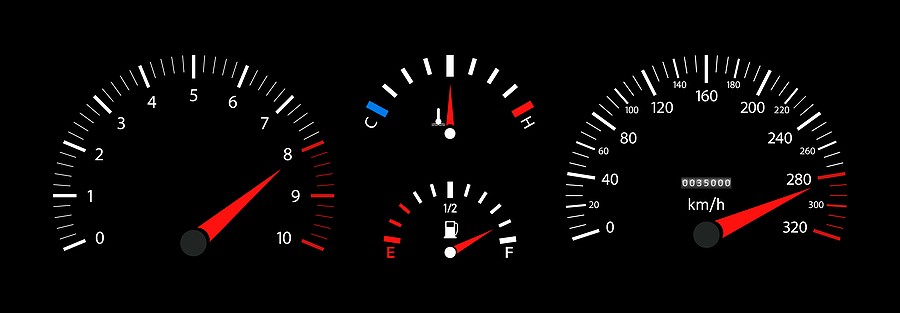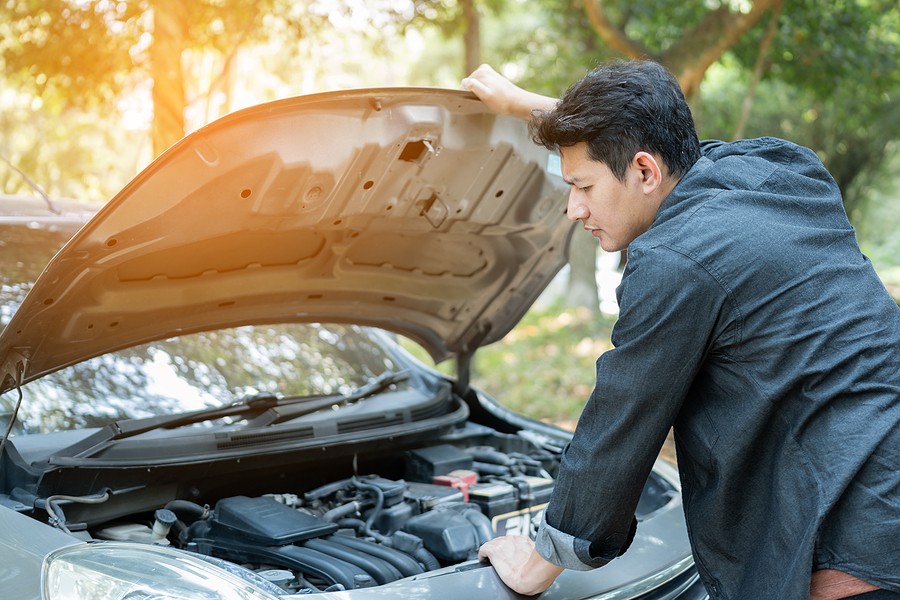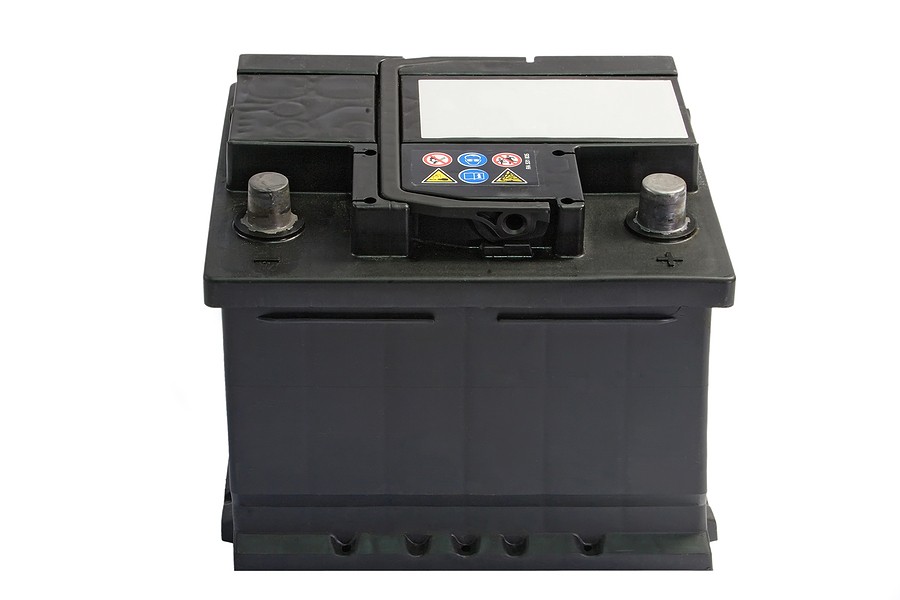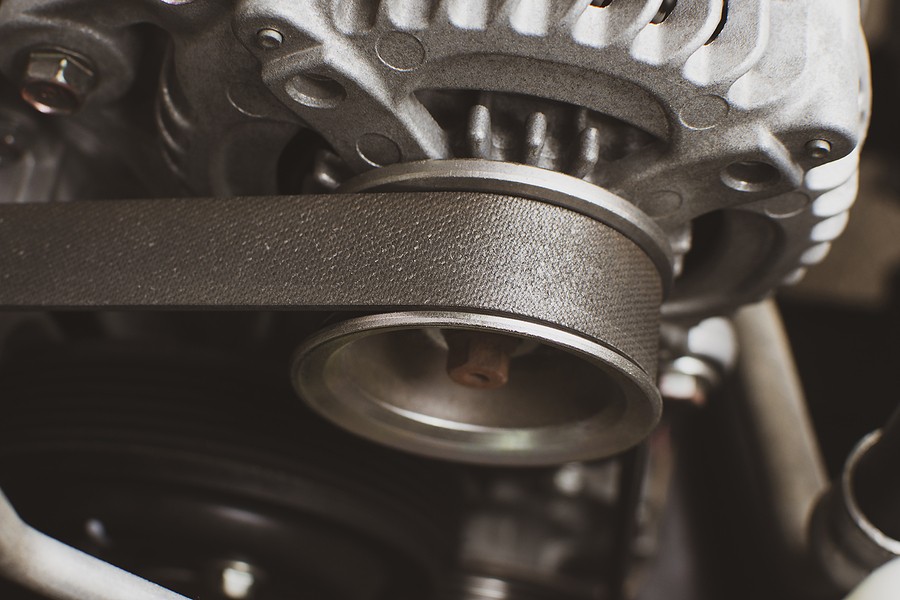If you're searching for “how to know if the alternator is bad,” below are 12 signs to watch for:
- Dimming headlights
- Dashboard warning lights
- Dead battery
- Weird noises
- Electrical problems
- Engine stalling
- Burning smells
- Accessories failure
- Difficulty starting
- Battery voltage issue
- Visual damages
- Belt tension
The vehicle alternator is a small component but plays a significant role in your vehicle's performance. It converts the engine's moving energy to electrical energy to power the electrical components and recharge the battery.
Many people think that the battery is responsible for doing this j. However, it's the alternator's job; even the batter takes charge of the alternate. When the alternator fails, it causes problems with every component and prevents your vehicle from starting at some points.
That's why it's important for you as a car owner to understand how to keep up with your vehicle's articulator and to watch for any potential signs of premature damage to help you address the problem as soon as possible before things get out of hand.
This article summarized the 12 most common symptoms indicating you're dealing with a failing alternator. It helps you ask, “How do you know if the alternator is bad?”
How do we know if the alternator is bad?
When the alternator goes bad, it leads to many problems in your car. One of the biggest ones is preventing your car from starting if it gets to damaging the battery and preventing it from recharging.
If you're able to pass the battery using a jumpstart, unfortunately, with the alternator, the only option for you is to replace it when it goes bad. Therefore, you must address any initial problems as soon as possible and prevent dealing with situations where you have nonworking electrical components.
Let's say it goes a look at the 12 most common symptoms to help you answer the question, “How do you know if the alternator is bad?”
1- Dimming headlights
The first and most common thing you might come across when your alternator is bad is when you have dimming headlights. Typically, the first thing that might come to your mind is that there is a bad battery, but the root thing might be linked to a bad alternator.
In other words, if the dimming headlights are happening when your vehicle is running, it's your alternator's responsibility to continue charging it, and it is most likely a bad alternator causing it.
However, if the problem is happening when your engine is turned off, it could be a problem related to that weak battery. Still, it could also indicate that your alternator was not strong enough to recharge the battery fully.
2- Dashboard warning lights
Depending on which vehicle you drive, sometimes you might find a warning light on the dashboard indicating that there is an issue with charging. This might be something like a sign of a battery or something else.
Regardless of what the warning light tells you on the dashboard, it is important for you as a car owner to keep up with these warning lights and never ignore them because they could be linked to an internal problem that is very major and might impact your safety.
Learning about these warning lights helps you prevent major damage and keeps you safe. Therefore, getting familiar with those warning lights might be a good idea, not all simultaneously, but one at a time or a couple at a time.

3- Dead battery
As we indicated before, the alternator is responsible for charging all the electric components and ensuring the battery is recharged after you start the car.
Another thing to keep in mind is that the battery only is needed to get your vehicle started and after that, it's not working. In other words, it's not needed. Therefore, the alternator will take over and start charging all these components.
Therefore, if you get to a point where the next time you try to start your car and realize that the better is dead, it might be a problem with the battery itself, but it could also be linked to a bad alternator that was not able to recharge the battery fully.
4- Weird noises
When the alternator goes bad or is about to go bad, you wiggle and start complaining with some warning and weird noises. These noises are mostly like taking noises whenever you turn the key in the ignition switch.
Remember that the noises might be linked to another problem in the starting system, like the starter motor. It could also mean something else in the engine itself. Therefore, you must never ignore these noises regardless of where they're coming from because they could be a new symptom that could help you prevent major damage.
Remember that the more you wait on the weird noises, the louder they get and the more complicated the problem is. Therefore, you must understand as soon as possible to avoid costly repairs.

5- Electrical problems
Since the alternator is responsible for charging the electrical components, it's unsurprising that those are not working when the alternator is bad. While it's not a significant problem if you're driving an older car, it might be very significant if your vehicle relies on these electrical components for safety issues.
For example, if you prefer to ride your car and reverse when there is a rear camera, sometimes it might not be charged and rely on the alternator, which could cause some issues. Also, a bad alternator might damage some of these sensitive electrical components.
6- Engine stalling
If you leave a bad alternator for a long time, you can deal with engine problems, including stalling. While it sounds like a general problem linked to many issues, a simple bet alternator might lead to it.
Remember that engine stalling is not a simple issue, and if it happens during some critical situations, it might lead to safety issues. Therefore, you must never ignore it, and if you think that it's happening continuously, consider checking the alternator.
7- Burning smells
Interestingly, that alternator might cause your vehicle to be stressed out, and dealing with weird smells like a burning smell can come from manimimpacted components is critical that you know where these smells are coming from and address them as soon as possible before things get more expensive to fix.
8- Accessories failure
Suppose you were driving a vehicle with many sensitive accessories that rely on the electrical system. In that case, it's not surprising to see that those could fail, which can be expensive to fix, especially if you rely on those accessories and you're driving your car with them.
That's why fixing a minor problem in the alternator can help you avoid other complications that might cost a lot of money. Check with your mechanic and see what needs to be done to fix the issue so you can save these electrical components.

9- Difficulty starting
If the battery is weak or not charged properly because of a bad alternator, you'll find it hard to start your car. Sometimes, you can start your vehicle, but it can be very hard, and you might need to skip the battery using a jump start.
Many people think that when the car does not start coming, it's immediately a battery problem; However, it could easily be the alternator that needs to be replaced. Therefore, if you tried skipping the battery using a jumpstart one or two times and realize that the battery is in good shape, it's most likely another issue that might be the alternator.
10- Battery voltage issue
The biggest concern about the alternator is operating. That's why if you're a mechanic or have the right experience, you can test the battery voltage. If you realize it's below what's expected, it might indicate a bad battery, but a closer look might reveal that it's the alternator causing the issue.

11- Visual damages
Another thing you could do to confirm whether you have a bad alternator or not is by looking at the alternator itself. Sometimes, you might see some visual damage or other issues indicating that the alternator needs to be replaced soon, even though it does not show any potential symptoms.
12- Belt tension
Finally, when the alternator is bad, some problems might be related to the belt. Per individual inspection, you can also see whether the belt is in bad shape or good shape, which might indicate some issues with the alternator.
How do we know if the alternator is bad? Final Thoughts
Your vehicle's alternator is one of the core components in your car that has to do with supplying the electrical components with the electrical charge. If the alternator goes bad, it'll deal with many problems, including not having a charge to recharge your battery.
This article highlighted the 12 most common symptoms to help you answer the question, “How do you know if the alternator is bad?” Once you notice these symptoms, you must consult your mechanic and have him replace the alternator to get your vehicle going.
If you're interested in similar posts, we highly encourage you to visit our blog by clicking here.





